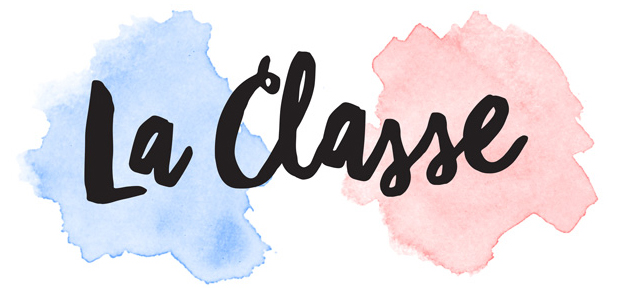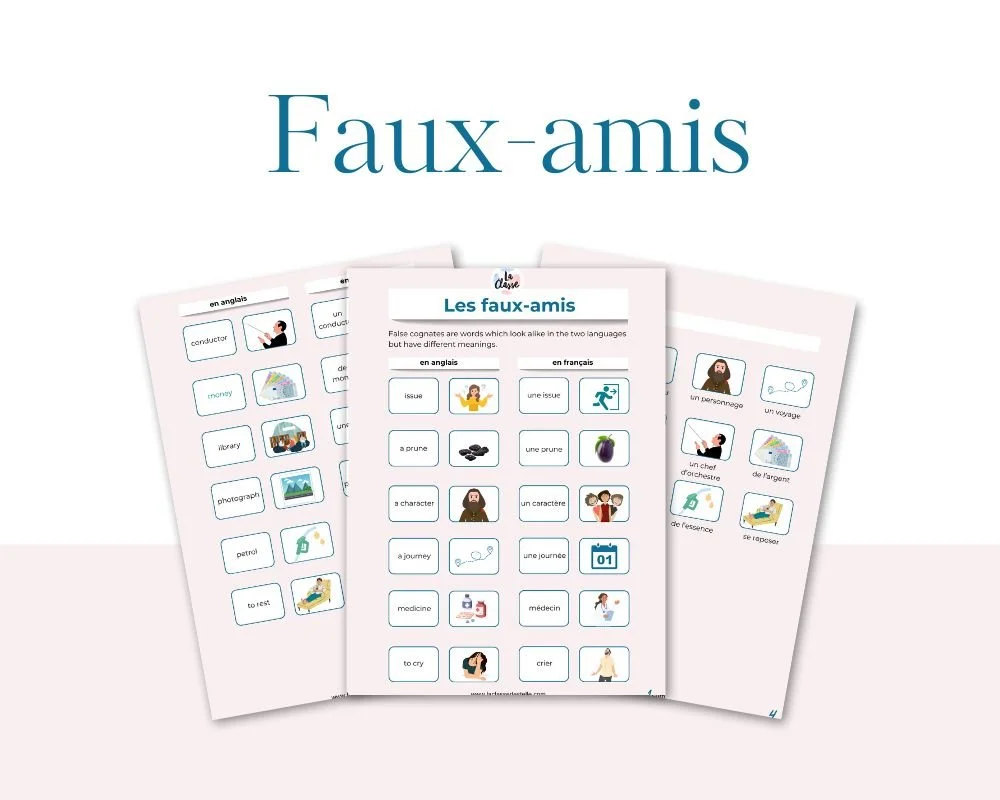Have you ever found yourself saying the same wrong thing in French again and again, no matter how many times you’ve been corrected? Maybe you use “beaucoup des” instead of “beaucoup de”, or you forget to make adjectives agree. If this sounds familiar, you’re not alone!
These repeated errors are very common, especially at the intermediate level. They often become habits over time, and once something starts to feel “right,” it’s harder to spot and change.
But here’s the good news: with a little awareness, and the right strategies, you can correct these patterns and start sounding more natural and accurate in French.
In this article, we will look at 8 common mistakes intermediate French learners make and how to fix them.
1. Common mistakes
1. Getting noun genders wrong (un/une, le/la)
This is still a challenge for many intermediate learners. French doesn’t always give us clues about the gender of a word.
Tips:
Always learn nouns with their article:
une idée, un film, la mer, le jardin.
You could also try using colour-coded flashcards — for example, pink for feminine nouns and blue for masculine — to help your brain visualise the gender more easily.
And don’t worry! Even French people can hesitate if they don’t know a word. Here is an hilarious clip of President Emmanuel Macron mixing up the genders of a couple of nouns, proof that you’re not alone!
📚 For more tips on this technique, check out my blog post about making flashcards : https://www.laclassedestelle.com/blog/using-flashcards-to-learn-french
2. Confusing “connaître” and “savoir”
Both mean “to know,” but they’re not interchangeable. This is a classic challenge at the intermediate level.
Use connaître with nouns when you know a person, a place, or a thing.
examples:
Je connais mes voisins.
Je connais bien Paris.
Use savoir with a verb or a clause when you know how to do something or know a fact.
exemples:
Je sais faire du vélo.
Je sais parler français.
Je sais que tu l’aimes.
A good trick: if you see a noun right after the verb, use connaître. If there’s a verb or “que…”, use savoir.
3. Choosing the wrong past tense
The passé composé vs imparfait distinction can be tricky.
Use passé composé for specific, completed actions.
Use imparfait for background descriptions, habits, or ongoing situations in the past.
examples :
Quand j’étais petit, je regardais les dessins animés.
Hier, j’ai regardé un film français.
4. Saying “beaucoup des / beaucoup du”
This is incredibly common! The correct structure is beaucoup de or beaucoup d’, even if the next word is plural.
✅ Use:
Beaucoup de gens aiment voyager.
Beaucoup d’élèves font cette erreur.
❌ Not: beaucoup des gens or beaucoup du temps
This rule applies to other quantities too! When you’re using expressions of quantity, always follow them with de or d’, without an article:
peu de temps
un peu de sucre
trop de bruit
une bouteille de vin
un kilo de pommes
un verre d’eau
assez de temps
pas mal de travail
It doesn’t matter if the noun is masculine or feminine, singular or plural — the "de/d’" stays the same. Hurray!
5. Using "préféré" when you mean "préfère"
These look similar but they play different roles in a sentence.
Je préfère = I prefer (present tense verb)
Mon dessert préféré = My favourite dessert (past participle used as an adjective)
examples :
Je préfère le chocolat noir.
Mon gâteau préféré, c’est le fondant au chocolat.
6. Pronouncing -ent at the end of verbs
Another very common mistake is pronouncing the -ent ending of verbs in the third person plural (ils/elles).
✅ Correct: The -ent is always silent.
Ils parlent → [il parl]
Ils mangent → [il mɑ̃ʒ]
👉 Tip: Remember that the -ent ending shows the subject is plural, but it never changes the pronunciation of the verb. In fact, many verbs in the ils/elles form sound exactly like their il/elle singular form:
Il parle / Ils parlent (same pronunciation)
Elle mange / Elles mangent (same pronunciation)
Training your ear with lots of listening (films, series, songs, podcasts, audiobooks) will help you get used to hearing and reproducing it naturally.
7. False friends (faux amis)
Some French words look like English words… but don’t trust them too quickly.
Examples :
Actuellement = currently (not “actually”)
Assister à un concert = to attend a concert (not “to assist”)
8. Using an article when saying your profession
In French, you don’t use an article when saying what you do for a living.
Examples :
Je suis professeure.
Il est avocat.
Elle est ingénieure.
✅ Not: Je suis une professeure or Il est un avocat
👉 But if you describe the person, you do add an article and adjective:
C’est une excellente professeure.
C’est un avocat très connu.
It’s a small detail, but one that makes a big difference in sounding natural.
2. Why Do These Mistakes Stick?
These stubborn mistakes don’t appear overnight, they usually build up slowly. Here are a few reasons they stick:
You don’t get corrected – People may understand you and not point out the mistake.
You repeat it without noticing – Our brains like shortcuts!
It starts to “feel right” – You’ve said it so often, it sounds normal to you.
You focus more on communication than accuracy – Which is fine! But sometimes, it’s worth slowing down and reflecting.
3. So… How Can You Fix These Mistakes?
Here are strategies that work:
Keep a mistake journal
Every time you notice a recurring error, write it down and keep track. This builds awareness and helps you notice your patterns.
Targeted practice
Pick one tricky grammar point and focus on it during the week. Little by little, it gets easier.
Try the shadowing technique
Repeat after a native speaker, copying their exact rhythm, pronunciation, and phrasing. This improves both speaking and grammar.
Ask for feedback
In class or in your conversation group, ask someone to gently correct one or two things you are trying to improve.
Reflect:
What’s one mistake you know you make a lot?
What small step could you take this week to work on it?
Conclusion: Progress Starts With Awareness
Mistakes are a natural and essential part of learning French. They don’t mean you’re not progressing, often, they simply point to the areas you can improve. With awareness, consistent practice, and thoughtful feedback, you can overcome them.
It’s not about being perfect; it’s about communicating, reflecting, and gradually refining your skills. Research even shows that learners retain more when they are free to make errors without fear of judgment.
So be patient, be kind to yourself, and trust the process. Keep practicing, stay curious, and celebrate each step forward.





